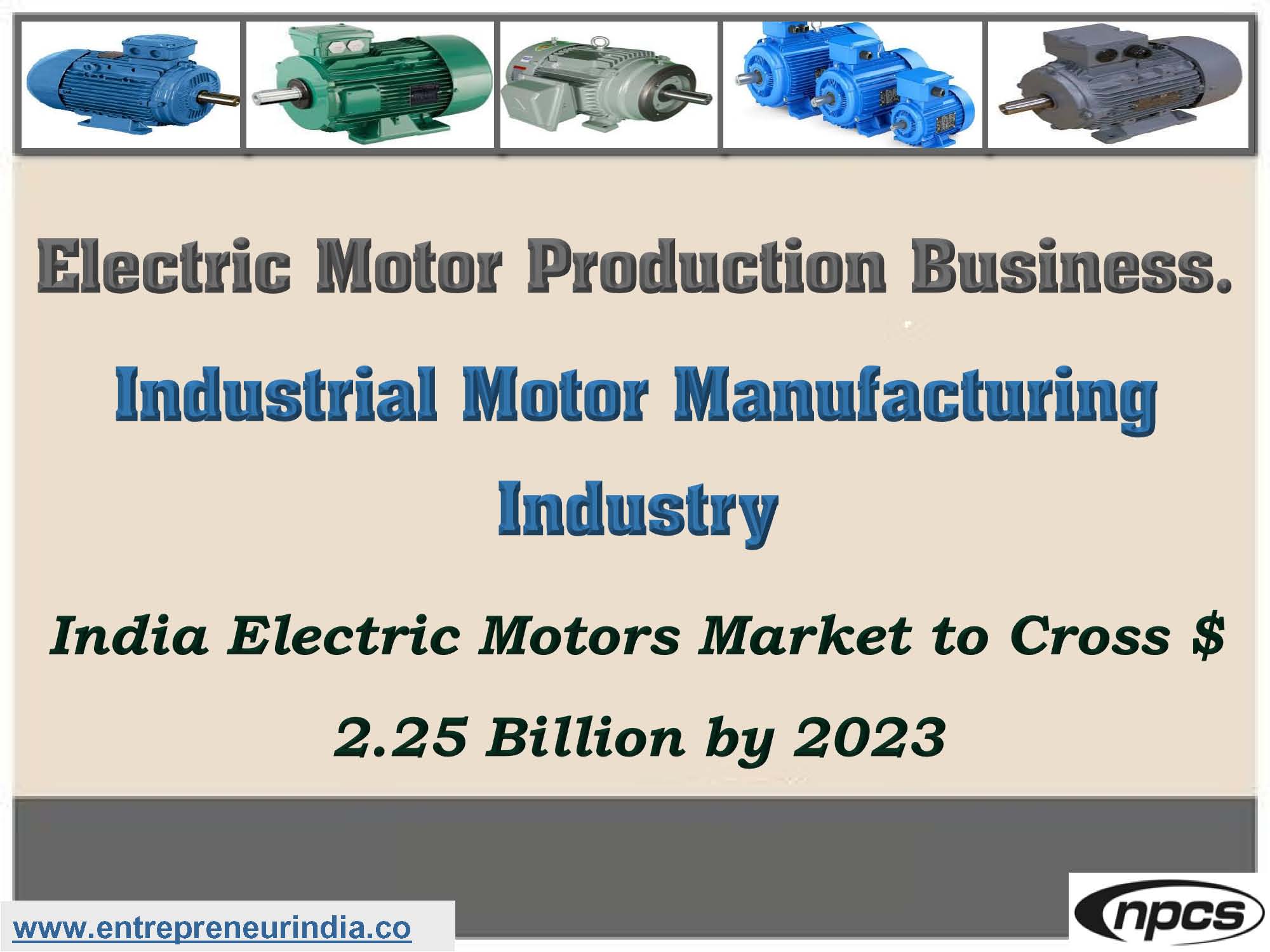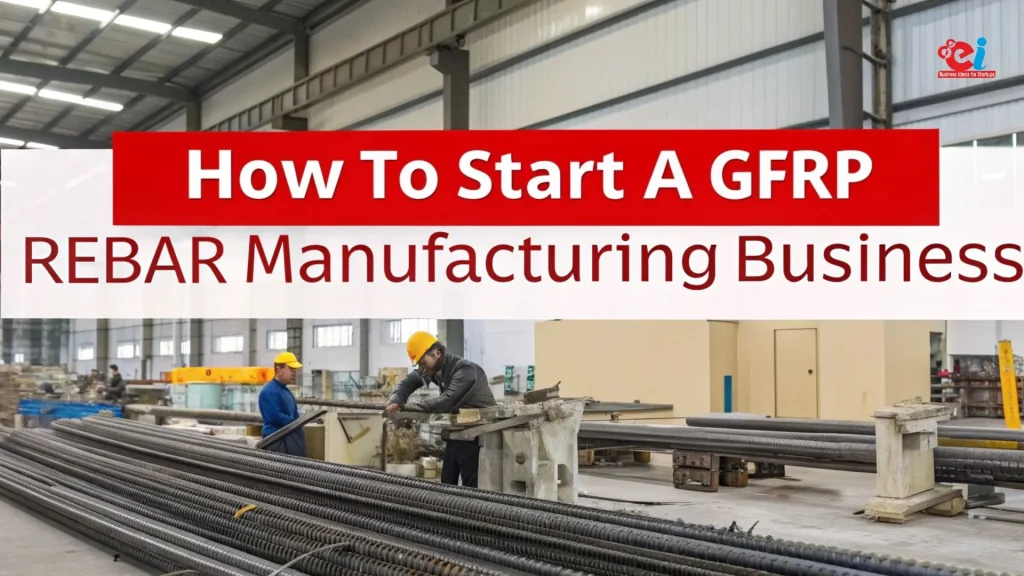
The electric motor production business is a high-potential industrial venture that plays a pivotal role in modern automation, electric vehicles, home appliances, HVAC systems, and industrial machinery. With the global transition toward clean energy and the rise in electrification of transport and manufacturing, electric motors have become indispensable. The growing demand for efficient, compact, and high-performance motors opens vast opportunities for manufacturers aiming to establish or expand in this thriving industry.
Market Overview and Growing Demand
The surge in energy-efficient technologies and electric mobility solutions has significantly increased the demand for electric motor production. Industries are shifting from hydraulic and pneumatic systems to electric alternatives for improved precision and cost-efficiency. Moreover, government incentives for EVs and renewable energy adoption amplify the scope of electric motor manufacturing in sectors like automotive, railways, robotics, agriculture, and aerospace.
Types of Electric Motors in Demand
There are various electric motors suited for different applications. The most in-demand types include:
-
AC Motors (Synchronous & Induction): Widely used in fans, pumps, compressors, and HVAC systems.
-
DC Motors (Brushed & Brushless): Preferred in electric vehicles, power tools, and automation equipment.
-
Servo Motors: Common in robotics, CNC machines, and automation systems.
-
Stepper Motors: Used in printers, 3D printers, and precision instruments.
-
Universal Motors: Seen in household appliances like mixers and vacuum cleaners.
Choosing a specialization based on industry demand helps manufacturers streamline production and ensure higher profitability.
Applications Across Industries
The versatility of electric motors allows them to power multiple sectors:
-
Automotive Sector: Electric powertrains, wiper systems, seat adjustments, and cooling fans
-
Manufacturing and Industrial Machinery: Conveyor belts, pumps, compressors, and robotic arms
-
Consumer Electronics: Washing machines, air conditioners, refrigerators, and fans
-
Healthcare Equipment: MRI machines, ventilators, surgical tools, and hospital beds
-
Renewable Energy: Wind turbines and solar tracking systems
-
Railways and Aviation: Traction systems and control units
As electrification trends continue, the scope for electric motor applications keeps expanding.
Raw Materials Required for Manufacturing
Efficient electric motor production relies on high-quality raw materials:
-
Copper Wire or Aluminum for Windings
-
Laminated Silicon Steel for the Stator and Rotor
-
Permanent Magnets (for brushless motors)
-
Bearings and Shafts
-
Insulating Materials
-
Plastic or Metal Housings
-
Epoxy Resins and Varnishes
-
Fasteners and Terminals
Sourcing certified materials ensures optimal motor performance, safety, and compliance with efficiency standards.
Manufacturing Process of Electric Motors
The standard production process involves:
-
Design and Engineering
Create 2D/3D models of motor components using CAD tools and define specifications like torque, speed, and efficiency. -
Core Laminations and Stamping
Punch out stator and rotor laminations from silicon steel sheets. Stack and bond them to form cores. -
Winding the Stator
Use copper or aluminum wire to create precise windings. The wire is insulated, wound, and inserted into stator slots. -
Rotor Assembly
For squirrel-cage rotors, cast aluminum is injected into slots. For brushless types, attach permanent magnets. -
Housing and Bearings Installation
Fit the rotor and stator into housings. Mount bearings to ensure smooth rotation. -
Impregnation and Varnishing
Apply epoxy or varnish to insulate windings and enhance durability. -
Final Assembly and Testing
Assemble the motor, connect terminals, and conduct electrical tests (no-load test, insulation resistance, and vibration analysis). -
Packaging and Dispatch
Pack motors with serial numbers and safety documentation for transport.
Each motor must meet national and international quality benchmarks such as IS, IEC, or NEMA.
Machinery and Tools Required
Setting up an electric motor manufacturing facility requires:
-
Stamping and Die Cutting Machines
-
Winding Machines (Manual, Semi-Automatic, CNC)
-
Rotor Casting Machines
-
Balancing and Varnish Equipment
-
Assembly Tools and Pneumatic Systems
-
Quality Testing Stations
-
Electrical Load Testing Benches
For medium-scale operations, initial investment ranges from ?2 crore to ?10 crore based on capacity and automation level.
Licensing and Compliance
To legally run an electric motor production business, secure the following:
-
MSME/Udyam Registration
-
Factory License
-
GST Registration
-
BIS Certification (Compulsory Registration Scheme)
-
ISO 9001 for Quality Management
-
Import Export Code (IEC)
-
Pollution Control Board NOC
Products for export may also require CE Marking, UL Listing, or RoHS Compliance.
Challenges in the Industry
While the market potential is strong, businesses must tackle key challenges:
-
Rising raw material costs, especially copper and magnets
-
Competition from imported low-cost motors
-
Need for energy-efficient motor designs (IE2, IE3, IE4 standards)
-
Retaining skilled labor and engineers
-
Maintaining zero-defect manufacturing
Investing in R&D, design innovation, and process automation is essential to stay competitive.
Business Models and Revenue Streams
Manufacturers can adopt various revenue approaches:
-
B2B Contracts: Supplying to OEMs in automotive, HVAC, and appliance sectors
-
Retail Sales: Selling through distributor networks or online platforms
-
Custom Motor Development: Engineering motors for niche applications
-
Export Markets: High-margin sales to Europe, Middle East, and Southeast Asia
-
Maintenance and Repair Services: Offering AMC or repair contracts
Each model adds revenue diversity and reduces dependency on a single market.
Growth Potential and Market Trends
The global electric motor market is projected to reach USD 200+ billion by 2032, fueled by:
-
EV revolution and battery-powered applications
-
Factory automation and Industry 4.0 adoption
-
Smart appliances and green buildings
-
Government push for energy-efficient equipment
India’s Make in India initiative also promotes domestic production of industrial and automotive motors, reducing import reliance and creating new opportunities.
Conclusion
The electric motor production business offers high scalability, broad applications, and sustainable profits in a rapidly electrifying world. With smart planning, technology upgrades, and compliance adherence, entrepreneurs can build a future-ready enterprise. The demand for efficient and eco-friendly motors will continue to grow, making this an ideal time to invest in innovation and capacity expansion.
Niir Project Consultancy Services
An ISO 9001:2015 Company
106-E, Kamla Nagar, Opp. Spark Mall,
New Delhi-110007, India.
Email: npcs.ei@gmail.com , info@entrepreneurindia.co
Tel: +91-11-23843955, 23845654, 23845886, 8800733955
Mobile: +91-9811043595
Website: www.entrepreneurindia.co , www.niir.org





